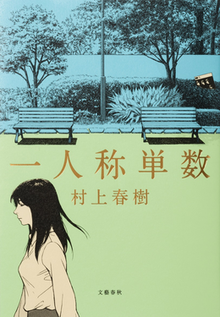
I think I've written once or twice that at this point in my life I find Murakami's short stories more interesting and engaging than his novels, and I think this collection does a great job of exploring why that is the case: there's a real erosion between fiction and biography that happens in his shorter work that I find charming, and it works as an advancement of his thesis around the outer bounds of reality.
In partiular, even though I've read a handful of these stories before (three of them were first published in the New Yorker), I found myself enjoying them again and finding that they contributed well to a gestalt. In particular, the final three stories — one expressly fiction, one expressly autobiographical, and the final one, from which the collection takes its name, somewhere in between — a delightful Murakami moment.
★★★★
Highlights
Of course, winning is much better than losing. No argument there. But winning or losing doesn’t affect the weight and value of the time. It’s the same time, either way. A minute is a minute, an hour is an hour. We need to cherish it. We need to deftly reconcile ourselves with time, and leave behind as many precious memories as we can—that’s what’s the most valuable.